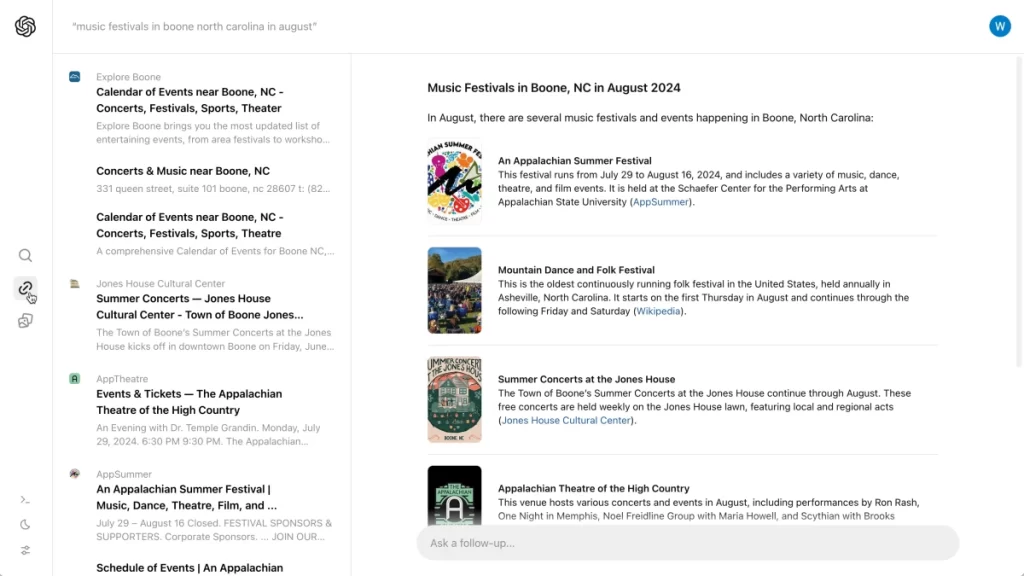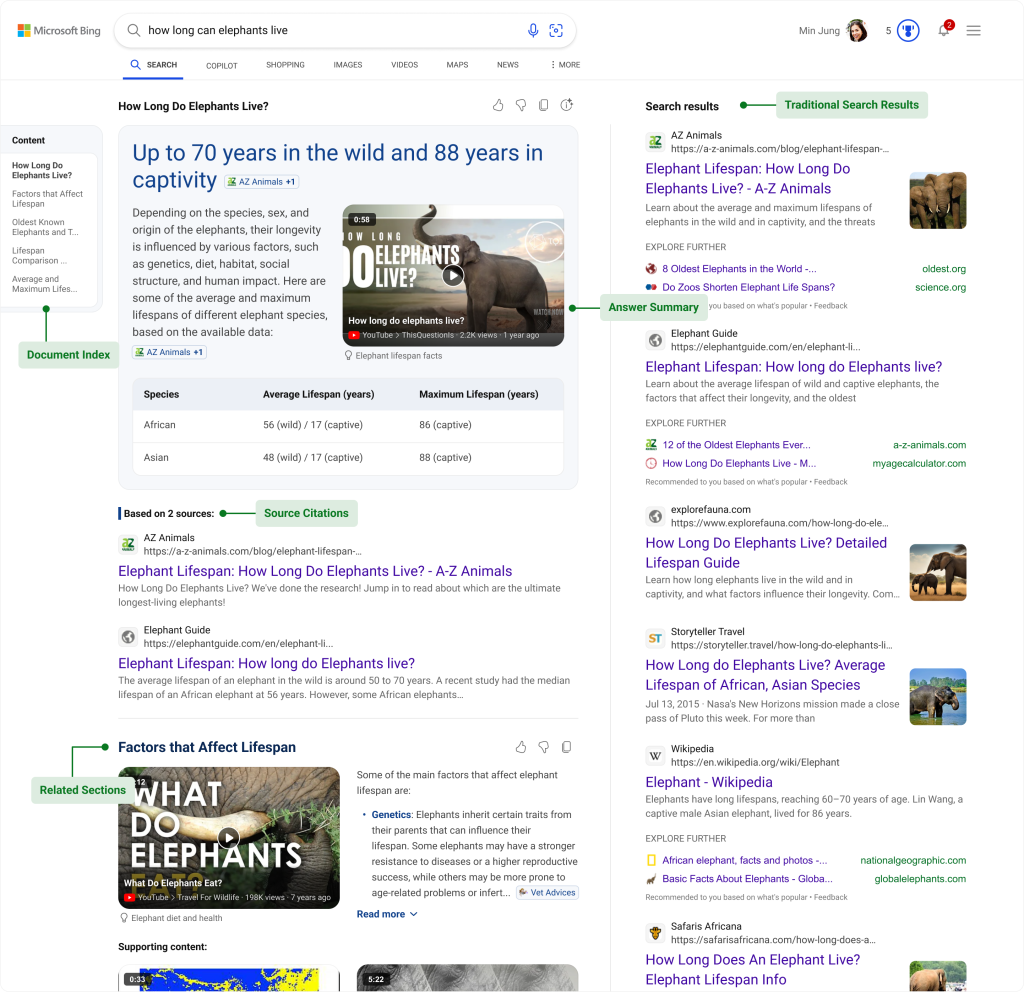
July is about to end and this week has been a very busy week in Search, with OpenAI finally introducing SearchGPT and Microsoft introducing its new Bing Generative Search. Google must be scrambling to come up with something after all these announcements from their rivals. Let’s see what they have to offer in the coming weeks. Check out this week’s notable news in the SEO space.
Speculation has been building for months on OpenAI’s plans to release its own search engine to compete with that of Google. On Thursday, it has come to fruition as the company announced its release of SearchGPT – a temporary prototype of new AI search features that gives fast and timely answers with clear and relevant sources.
According to the announcement, they are testing a prototype of new search features designed to combine the strength of their AI models with information from the web, in order to provide fast and timely answers, with clear and relevant sources. They are calling this prototype SearchGPT. While the prototype is temporary, they plan to integrate the best of its features directly into ChatGPT in the future.
According to the company, getting answers on the web can take a lot of effort, often requiring multiple attempts to be able to get relevant results. They believe that by enhancing the conversational capabilities of their models with real-time information from the web, finding what you’re looking for can be faster and easier. SearchGPT will quickly and directly respond to questions with up-to-date information from the web, while providing clear links to relevant sources. Users will also be able to ask follow up questions, similar to that in a conversation with a person, with the shared context building with each query. All these, inorder to make searching way easier and faster, compared to that of traditional search.
An issue that publishers and content creators have with generative AI and search is how they are losing traffic to their sites and the lack (or not as visible) of citation. OpenAI deals with this by partnering with publishers and creators. According to the company, they are committed to a thriving ecosystem of publishers and creators, and they hope to help users discover publisher sites and experiences, while bringing more choice to search.
For decades, search has been a foundational way for publishers and creators to reach users. Now, they are using AI to enhance this experience by highlighting high quality content in a conversational interface, with multiple opportunities for users to engage. They have designed it to help users connect with publishers by prominently citing and linking to them in searches. Responses would have clear, in-line, named attribution and links so that users know where the information is coming from and can engage with more results in a sidebar with source links.

SearchGPT is launching to a small group of users and publishers for the company to be able to get feedback on it. They have also opened up a waitlist for those interested in trying it.
It’s definitely exciting news and we look forward to testing it. Is it a Google killer? Would it be able to steal off a chunk of Google’s 90% market share in Search? We can only wait and see.
Microsoft has introduced its new generative search experience that combines the power of LLMs and SLMs (Large Language Models and Small Language Models) with Bing’s search results, “to generate a more delightful and efficient UX layout”.
According to Microsoft, the new experience combines the foundation of Bing’s Search Results with the power of large and small language models. It understands the search query, reviews millions of sources of information, dynamically matches content, and generates results in a new AI-generated layout to fulfill the intent of the user’s query more effectively. They have refined their methods to optimize accuracy, applying those insights as they continue to evolve their use of LLMs in search.
They are looking closely at how generative search impacts traffic to publishers. Their early data indicates that this experience maintains the number of clicks to websites and supports a healthy web ecosystem. The generative search experience is designed with this in mind – including traditional search results and increasing the number of clickable links, like the references in the results.

The Bing Generative Search Experience is currently shipping to a small percentage of user queries. According to the company, they are slowly rolling it out and will take their time, garner feedback, test and learn, and work to create a great experience before making it more broadly available.
Google has released a SEO Made Easy episode on how to use internal linking for SEO. In the episode, Martin Splitt of the search team discusses what internal linking is, its importance, how to use it, and some tips on optimizing internal linking for SEO. Check out the episode below:
One of the common questions asked from the search team, especially on SEO Office Hours episodes have something to do on having different versions of sites in different languages and the use of hreflang. In this week’s Search Off The Record podcast episode, the Google search team discusses just that – internalization, hreflang, and how to manage multilanguage sites easier.
If your site has versions in different languages or you are planning to cater to different locations and languages, check out the episode below: